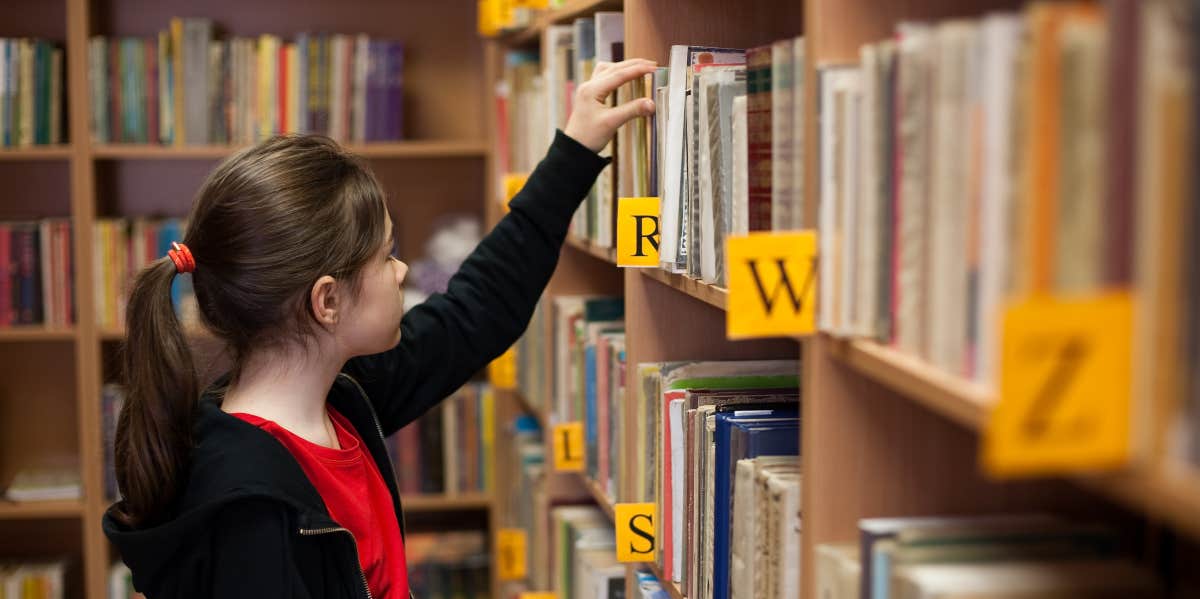How Books Bans Are Threatening American Education But Helping Politicians
Why is book banning becoming more and more popular?
 Jacek Chabraszewski / Shutterstock.com
Jacek Chabraszewski / Shutterstock.com Forsyth County Schools in Georgia have announced that they are banning eight new books and looking at potentially banning several others for being “sexually explicit.”
Some of the books were outright banned while some were moved to high school media centers.
The list featured a lot of very popular books that are commonly read by children and young adults.
“Administratively we reviewed the books and we have over 500 thousand books in our media centers in Forsyth County Schools, but there were eight of them we determined were not appropriate to be in public schools,” Superintendent Dr. Jeff Bearden told Channel 2 Action News.
Book bans across the country are increasing in popularity and threaten American education.
Georgia is one of several states that has been cracking down on the reading materials accesible to children and teens.
These bans threaten the diversity of story-telling and betray a desire to control how children acquire information.
Books bans, as the existed in history and today, have always been about censorship and denying people access to certain information.
Most of the banned books are prohibited due to outdated notions about sex.
Among the books banned in Forsyth county was “Me and Earl and the Dying Girl,” written by Jesse Andrews.
The banning of “Me and Earl and the Dying Girl” spells a mystery and could point us in the direction of the real issue behind the banning of books and censorship.
The book is about two friends who make movies together — amateur films at best since they’re kids.
When one of them, Greg, reconnects with a childhood friend who has leukemia, they start sharing their movie-making world with her and she asks them to make a movie about her.
However, none of the novel is that sexually explicit or vulgar aside from some of the jokes they make as normal children, so this spells out a bigger problem that parents seem to be faced with about their children and fears that they’re projecting onto their kids.
RELATED: How Removing Critical Race Theory From Schools Is Dumbing Down America
Conservative groups across the country seem to be making a large push into banning books that feature topics they deem to be “inappropriate” for certain age groups, such as gender and sexual identity as well as those that feature any sexual activity.
“The [politicization] of the topic is what's different than what I’ve seen in the past,” said Britten Follett, the chief executive of content at Follett School Solutions, one of the country’s largest providers of books to K-12 schools.
“It’s being driven by legislation,” she continued, “it’s being driven by politicians aligning with one side or the other. And in the end, the librarian, teacher or educator is getting caught in the middle.”
“To Kill a Mockingbird,” is also among one of the most challenged books in the nation, showing that it’s not just about teaching kids about sex too early — which is a myth in and of itself.
The challenge is that politicians and parents want to control what children consume in order to cater to their own personal views without caring about the diversity of reading resources at their disposal or teaching them about the things that they disagree with.
Nationwide book bans are giving more powerful to Republican politicians.
A new bill in Georgia has gained Republican support for making it easier for parents to challenge books that they deem harmful for their children to read.
In Oklahoma, a bill was introduced that would prohibit public school libraries from keeping books that focus on sexual activity, sexual identity or gender identity.
Even more recently, a county in Tennessee banned the Pulitzer-prize winning graphic novel "Maus," which was about the Holocaust, from their schools — oh the irony.
Many people on the left argue that trying to censor these books or remove these resources is an attack on their freedom of speech.
People on the right claim that schools are no place for these resources and if they want to read them outside of school they can.
But school, unless enrolled in a privatized education system, is public, and should be left public with the goal of teaching kids — book censorship is not how that’s done.
These books are important in allowing youth to talk about their problems, relate to other people, and really understand themselves as they grow and develop in some of the most difficult and impressionable times of their lives.
It also prevents stigmas about sex or identity or mental illness or whatever else might be censored to achieve some groups’ agendas, lest we forget about the last time a group of people had a problem with books.
Isaac Serna-Diez is a writer who focuses on entertainment and news, social justice, and politics. Follow him on Twitter here.

